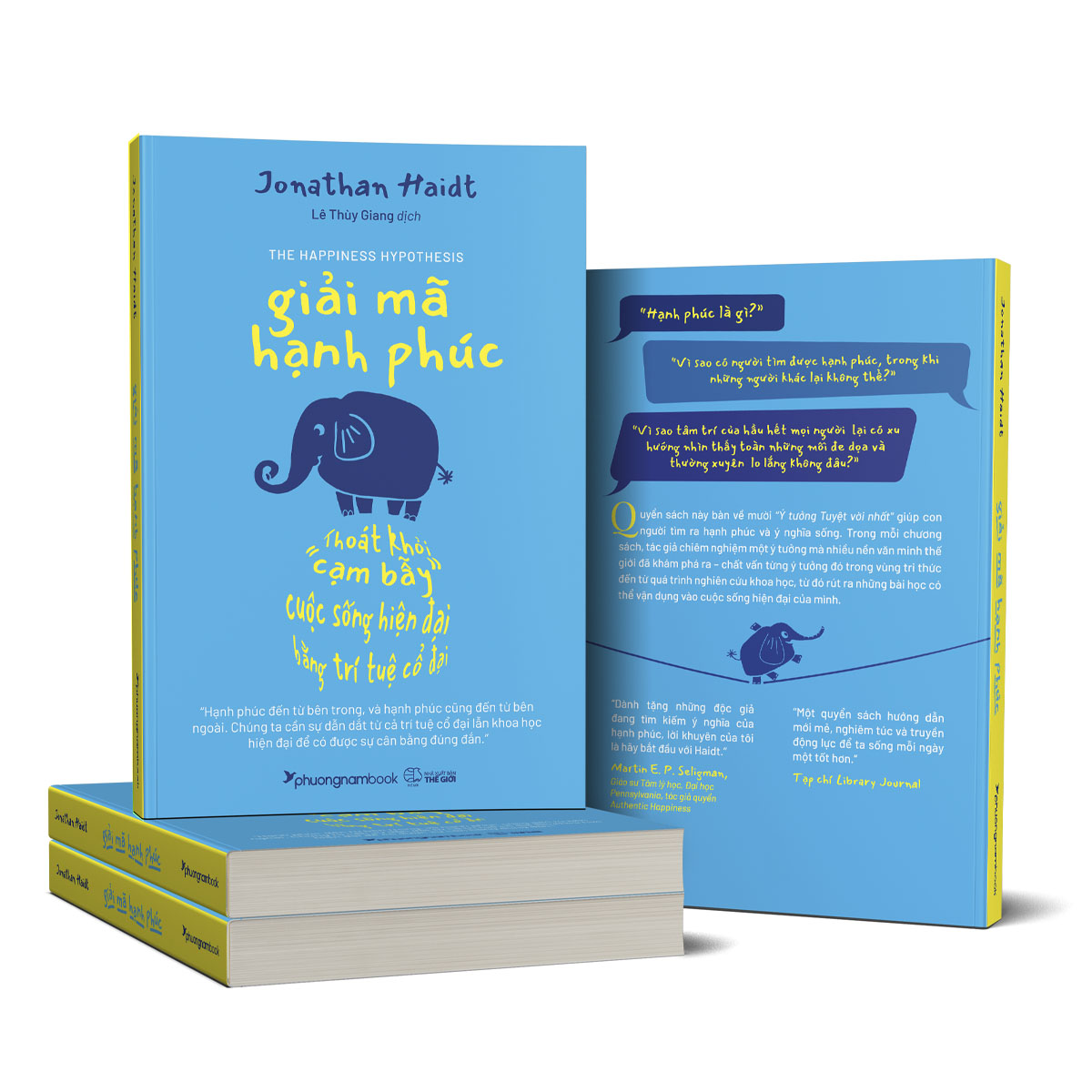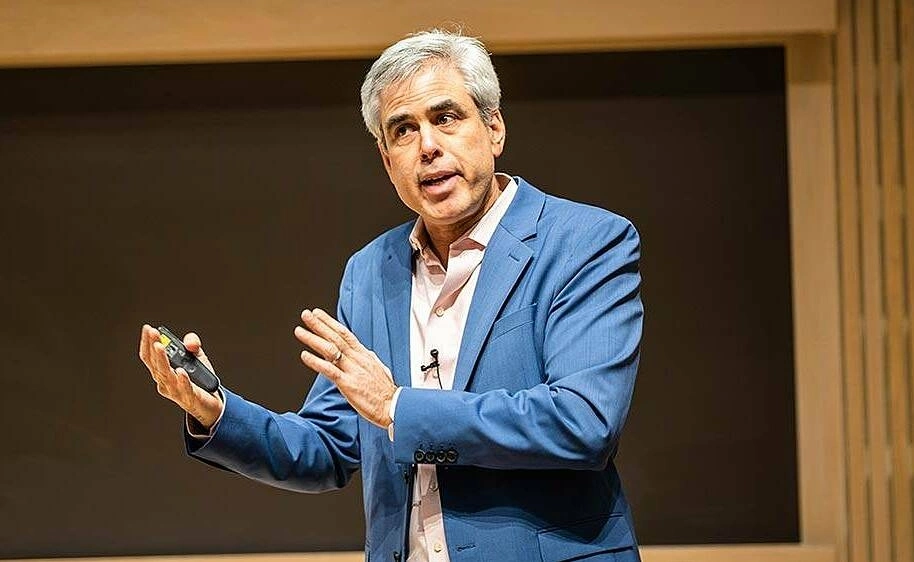In "The Happiness Hypothesis", Haidt uses the metaphor of a rider (reason) and an elephant (instinct, emotion) to explain this concept. If the rider doesn't know how to lead, the elephant will always prevail. Therefore, to achieve happiness, each individual needs to learn to understand both parts of themselves, instead of rigidly trying to control their instincts.
From this premise, Haidt discusses happiness and the meaning of life through a dialogue between ancient truths and modern scientific research. He approaches this dialogue with respect and a dialectical spirit, considering the relevance of these ideas to today's world.
 |
The cover of "The Happiness Hypothesis". The book, published by Phuong Nam Book in association with The Gioi Publishers, is 384 pages long and was released in Vietnam in late July. Photo: Phuong Nam Book |
The cover of "The Happiness Hypothesis". The book, published by Phuong Nam Book in association with The Gioi Publishers, is 384 pages long and was released in Vietnam in late July. Photo: Phuong Nam Book
The book also discusses the role of adversity in inner development. Haidt references the classic quote by philosopher Friedrich Nietzsche: "What does not kill me makes me stronger." He points out the common ground noted by ancient Eastern and Western thinkers and modern psychologists: adversity, in the "right dose" and at the right time, can become a period of inner restructuring, helping one to identify themselves and renew their values. This is a process of post-traumatic growth because, given the opportunity for reflection, connection, and adjustment, individuals can emerge from pain with a stronger sense of self.
However, some losses cause irreparable damage if the adversity is "over the limit" or lacks proper support. Haidt examines Nietzsche's statement through the lens of modern psychology and PTSD (post-traumatic stress disorder), pointing out that difficulty doesn't automatically lead to growth. The book's introduction states: "Everyone has heard that 'what doesn't kill you makes you stronger,' but this is a dangerous overgeneralization. Many things that don't kill you can still damage you for life."
In addition, Haidt addresses a common notion promoted by many great ideologies throughout history—finding happiness from within. While not advocating for a lifestyle dependent on external factors, he also disagrees with the idea that simply changing one's mindset will transform their life. "I want to suggest that the happiness hypothesis can be expanded—now—into a yin-yang formula: Happiness comes from within, and happiness comes from without," he writes. Joy comes not only from inner peace and material sufficiency but also from a sense of connection and contribution to the surrounding society. To achieve this, he encourages everyone to broaden their minds and hearts to embrace different beliefs, as long as they are oriented towards a good and meaningful life.
Jonathan Haidt wrote the book as a researcher but also as a learner, navigating the forest of life philosophies. He dedicates the book to those who may still have doubts but believe in the ability to master their lives through knowledge and understanding.
On Goodreads, the book has an average rating of 4.03/5 with over 43,000 ratings from global readers. Barry Schwartz of Swarthmore College, author of "The Paradox of Choice: Why More Is Less", states: "With masterful writing, Jonathan Haidt shows us the deep connections that exist between cutting-edge psychological research and the wisdom of the ancients. We are thrilled to see how modern psychology helps answer some of life’s oldest and most persistent questions."
 |
Author Jonathan Haidt. Photo: Colgate University |
Author Jonathan Haidt. Photo: Colgate University
Jonathan Haidt, 52, is a professor emeritus of psychology at the University of Virginia and a social psychologist at New York University's Stern School of Business. His research often focuses on the emotional foundations of morality and how morality varies across cultures. In 2019, he was elected to the American Academy of Arts and Sciences and was named one of the world's top 50 thinkers by Prospect magazine. His works include "The Anxious Generation," "The Righteous Mind: Why Good People are Divided by Politics and Religion," and "The Coddling of the American Mind."
Khanh Linh











